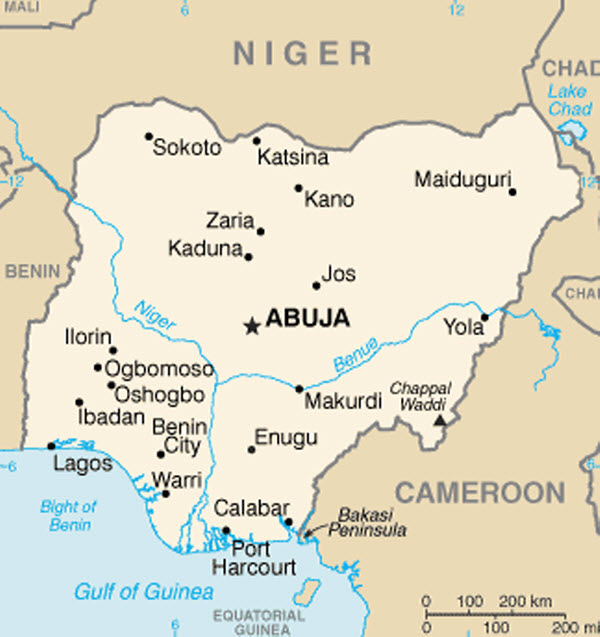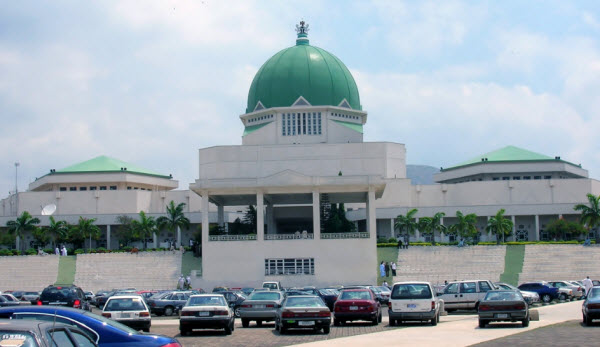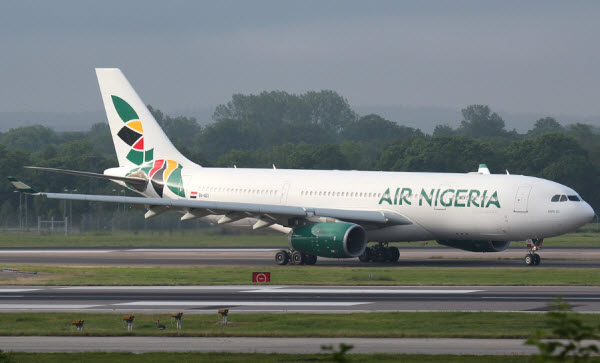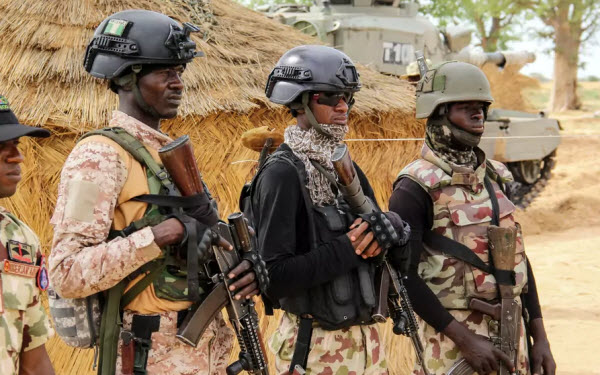Nigeria is a country located in West Africa. It is the most populous country in Africa and has one of the largest economies on the continent.
Geography

Location: West Africa
Coordinates: Approximately 9.0820° N, 8.6753° E
Area: About 923,769 square kilometers.
Borders:
- North: Niger
- South: Atlantic Ocean (Gulf of Guinea)
- East: Chad and Cameroon
- West: Benin
Climate:
Varies from equatorial in the south, tropical in the center, and arid in the north.
Topography:
Includes plateaus in the central part, lowlands and coastal plains in the south, and the northern desert region.
Elevation:
The highest peak is Chappal Waddi, at an elevation of 2,419 meters.
Natural Resources:
Includes oil, natural gas, coal, tin, limestone, iron ore, lead, zinc, and arable land.
Land Use:
37% agriculture, 13% forests, 50% built-up areas, and other uses.
Population Distribution:
Population density is concentrated in major urban areas such as Lagos, Kano, and Ibadan.
Population and Society

Population: Approximately 223 million (2024 estimate).
Ethnic Groups:
Includes Hausa-Fulani, Yoruba, Igbo, and over 250 other ethnic groups.
Languages:
English is the official language. Major regional languages include Yoruba, Hausa, and Igbo.
Religions:
Christianity (in the south and central regions), Islam (in the north), and indigenous beliefs.
Age Structure:
Nigeria has a very young population, with a median age of about 18 years.
Population Growth Rate:
Approximately 2.5% annually.
Country

Country Name: Federal Republic of Nigeria
Common Name: Nigeria
Reason for Name: Derived from the Niger River, which flows through the country.
Type of Government: Federal Republic
Capital: Abuja
Reason for Naming Capital: Abuja was chosen as a neutral city in the center of the country, replacing Lagos as the capital in 1991.
Local Time: West Africa Time (UTC+1).
Daylight Saving Time: Not observed.
Administrative Divisions: 36 states and 1 Federal Capital Territory (Abuja).
Territories: None.
Independence: Gained independence from the United Kingdom on October 1, 1960.
Citizenship Acquisition: Through birth in Nigeria, legal residency, or naturalization.
Legal System: Mixed legal system of English common law, Islamic law (in the north), and customary law.
Executive Branch: The President is both the head of state and government.
Legislative Branch: National Assembly consisting of the Senate and House of Representatives.
Judicial Branch: The Supreme Court and other federal courts.
Political Parties: All Progressives Congress (APC), People’s Democratic Party (PDP), and others.
Flag Description: A vertical tricolor of green, white, and green representing agriculture and peace.
Country Code: NGA
Economy
GDP: Approximately $510 billion USD.
Agricultural and Animal Products: Cassava, yams, cocoa, peanuts, cattle, poultry.
Industries: Includes oil and gas, telecommunications, agriculture, and textiles.
Budget: Deficit due to high government spending and lower oil revenues.
Exports: Crude oil, natural gas, cocoa, and rubber.
Imports: Machinery, chemicals, transport equipment, and food products.
Foreign Reserves: Approximately $38 billion.
External Debt: About $40 billion.
Local Currency: Nigerian Naira (NGN).
Communications
Landlines: About 100,000 lines.
Mobile Lines: About 200 million lines.
Country Code: +234
Broadcast Media: Includes national television stations, regional radio stations, and private media outlets.
Internet Code: .ng
Internet Users: Approximately 122 million people.
Transportation

National Air Transport System: Developing network of airports and airlines.
Airports: Over 54 airports, including major international airports in Lagos and Abuja.
Helipads: Some in use, particularly in urban areas and oil-rich regions.
Pipelines: Extensive network for oil and gas transport.
Railroads: About 3,500 kilometers of railways, with expansion ongoing.
Road Network: Includes over 193,000 kilometers of roads, though infrastructure is in need of improvement.
Ports: Major ports include Lagos, Port Harcourt, and Calabar.
Military

Military Composition: Includes the Nigerian Army, Navy, and Air Force.
Military Spending: Approximately $2.7 billion USD annually.
Military and Security Personnel: About 120,000 active duty members.
Military Equipment: Includes fighter jets, warships, armored vehicles, and small arms.
Military Service Age: 18 years and above.
